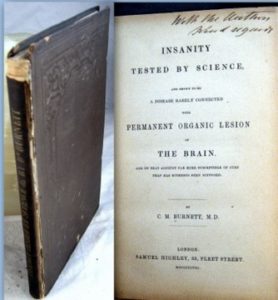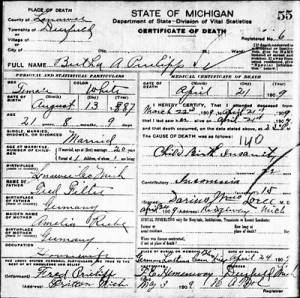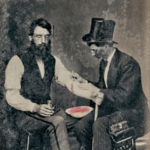Some of the new ideas about insanity and ways to prevent it helped doctors believe in cures after a long period in which they had resigned themselves to believing that most insanity was chronic.
An article from the November 12, 1922 edition of The Washington Post quoted Dr. Toulouse, a renowned French alienist, who had founded the League for Mental Hygiene and Prophylaxis. He believed that “half the occupants of the world’s insane asylums are not mad, but diseased.” Like most other alienists, Toulouse also believed that early intervention was critical; he set up a clinic where people could go when they felt their “nerves giving way.”
Toulouse believed the three great causes of insanity were sorrow, thyroid deficiency, and vice. Patients at his clinic would be questioned at length so that Toulouse could arrive at a life history for the individual. A physical exam would then determine whether they “were born with an excess of thyroid matter” or whether they had become addicts to vice–including drugs. Though all three (main) causes of insanity could be cured, Toulouse felt that madness caused by sorrow was the most difficult to resolve successfully.
Sorrow caused by bereavement or crosses in love could be healed after time, but sorrow caused by loss of money was the hardest to cure. “Practically the only sedative for a person who has once been wealthy and who finds himself suddenly poverty-stricken is to provide him again with wealth,” said Toulouse. This was obviously an impractical course of treatment.







